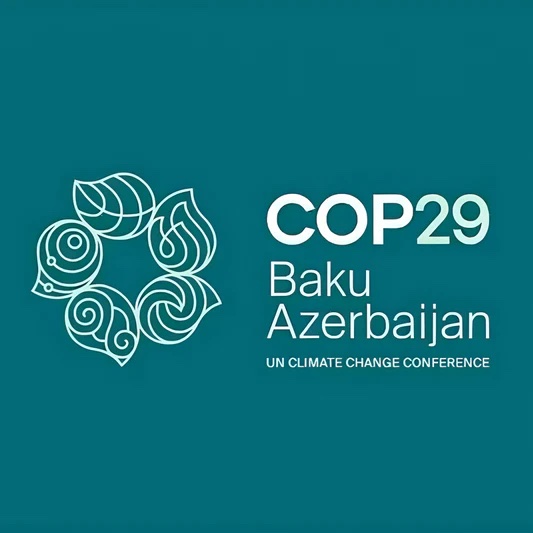COP29 update: Day 11, 22 November

Greetings from Baku!
Towards the end of a COP, it’s not unusual to hear controversial statements, though normally they’re reserved for the tense end-game of the negotiations. We certainly weren’t expecting UK climate minister Ed Miliband to bring his A-game to the delegation pavilion area, but that’s what he did when he asserted at the UK’s pavilion closing event today that “our coffee is the best coffee at COP29.”
We’re grateful that Australia, the Pacific island alliance, Singapore and any number of other delegations were not within earshot, or there might have been some undiplomatic language breaking out amid the steady dismantling of the venue.
We waited until shortly after midday for new texts, hoping that an updated Article 6 might emerge, but instead we had to content ourselves with new iterations of the New Collective Quantified Goal, the Global Stock Take outcomes, the Mitigation Work Plan, the Global Goals on Adaptation, and the Just Transition Work Plan.
Obviously, most attention zeroed in on the NCQG text, and we were disappointed to note that all of the explicit references to carbon markets that we celebrated yesterday had been deleted in this new version.
Having said that, some veteran observers pointed to language in paragraph 8 (a), which referred to “public and private, bilateral and multilateral, including alternative sources of finance.” For some, this suggested possible openings for international levies or even carbon markets.
The headlines were that the NCQG “calls on all actors to work together to enable the scaling up of financing to developing country Parties for climate action from all public and private sources to at least US$1.3 trillion per year by 2035.”
But it also “decides to set a goal in extension of the goal referred to in paragraph 53 of decision 1/CP.21, with developed country Parties taking the lead, to US$250 billion per year by 2035 for developing country Parties for climate action.”
The role of major developing country economies such as China was addressed by a formulation that means they are not responsible for the $250 billion, but their contributions could be counted towards the delivery of that figure.
We heard some confusion among stakeholders regarding the formulation of the text on sources of finance, as the breakdown between public, multilateral development bank and private sources lacked clarity.
The text on taking forward the Global Stock Take was said to have a clearer reiteration of the commitment to the fossil fuel transition included in the decision from last year; earlier in the week some Parties had pushed back against references to fossil fuels. However, references for fossil fuels were missing from the Mitigation Work Programme.
With no plenary scheduled until Saturday morning, there were only a few public reactions to the text from Parties. The Marshall Islands called it “shameful”, AOSIS called the draft “unacceptable”, and the African Group called it “inadequate”. Even the lead negotiator from Azerbaijan said there wasn’t enough money on the table.
The Least Developed Countries group said it was “weak on many issues: the quantum is far less than needed, [and] it offers no guarantee of minimum allocation for our groups.”
Meanwhile a senior United States official tried to manage expectations. They pointed out that the previous $100 billion-a-year commitment had been “a significant lift over the past decade.”
“$250 billion will require even more ambition and extraordinary reach,” the official added. “This goal will need to be supported by ambitious bilateral action, MDB contributions, and efforts to better mobilise private finance, among other critical factors.”
And Swiss finance minister Albert Rösti added a note of reality. A climate finance goal involving “sums that will never be paid…will be much worse than no deal,” he told the press tonight.
“Western countries have restrictions in their budgets,” so while he wants a goal much higher than $100 billion “it can’t be too high and non-realistic”.
It appears there is still quite a gulf between the two camps on the quantum of finance, if nothing else.
As of midnight Baku time there was no schedule for a plenary meeting to discuss the new texts, and unofficial sources suggested Parties were more likely to meet around 1000 AZT on Saturday.

With many pavilions either empty or beginning to be dismantled, IETA staffers took advantage of the relative quiet to meet stakeholders for discussions on the events in Baku.
In the negotiations
On Article 6 there was pretty much no news all day. The ministerial consultations continued behind closed doors deep into the day, and it was only around 2100 AZT that new texts for Article 6.2 and Article 6.4 appeared.
Third party sources reported that the reaction among negotiators was upbeat, with Carbon Pulse quoting several negotiator sources as saying that the latest version of the documents could well be agreed on. Outstanding issues are “small” and one source said only the United States is holding up a deal.
However, stakeholders warned us that the ongoing disagreements over the NCQG text could well delay or even prevent a formal adoption of these latest drafts.
We had a taste of this earlier in the week when the Like Minded Developing Country group was said to be holding up progress in the Article 6 talks due to their unwillingness to see text concerning fossil fuels in the Mitigation Work Programme.
We’ll find out more on Saturday morning when we expect a plenary to go through the various texts and Parties will deliver their reactions.
We should also point out that there has been a draft decision on Article 6.8 waiting for formal approval for several days.
With the public areas of COP now closed and most delegates now heading home for a well-earned break, some people’s thoughts are starting to turn to COP30 next year.
If you have a spare half-hour, you might want to download the latest Bloomberg Zeropodcast, which features André Corrêa do Lago, Brazil’s Secretary for Climate, Energy and the Environment, who is tipped to become the next COP president. He shares forthright views on Article 6 issues, including the transition of CDM credits into the new Paris Agreement Crediting Mechanism, what he calls the “absurd” discrediting of forestry credits.
Corrêa do Lago also touches on the state of the NCQG negotiations as of Thursday and the importance of the G20 process, the prospects for a deal in Baku, how Brazil is balancing its role as COP30 host with being a major oil producer, and the likely impact of Donald Trump’s return to the White House.
And if your horizon stretches even further than Q4 2025, you probably know already that a row is brewing over where to hold COP31.
Both Australia and Turkey have expressed a wish to host COP in two years’ time, and neither appears willing to give up their claim. There have been repeated diplomatic efforts by Australia to persuade Turkey to step aside, but so far there has been no sign of it. And as a result, a decision on where COP31 will take place has been postponed until the June mid-sessional meeting.
This is the final edition of IETA’s COP29 Daily Update. Our annual COP Summary Report will be published early next week.
We hope you’ve found these daily reports of value, and look forward to seeing you soon!
